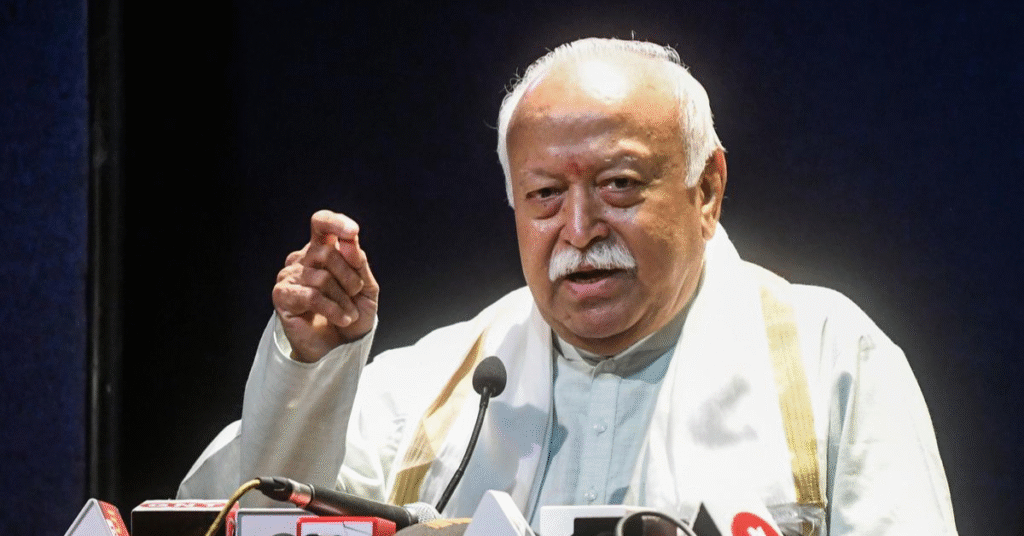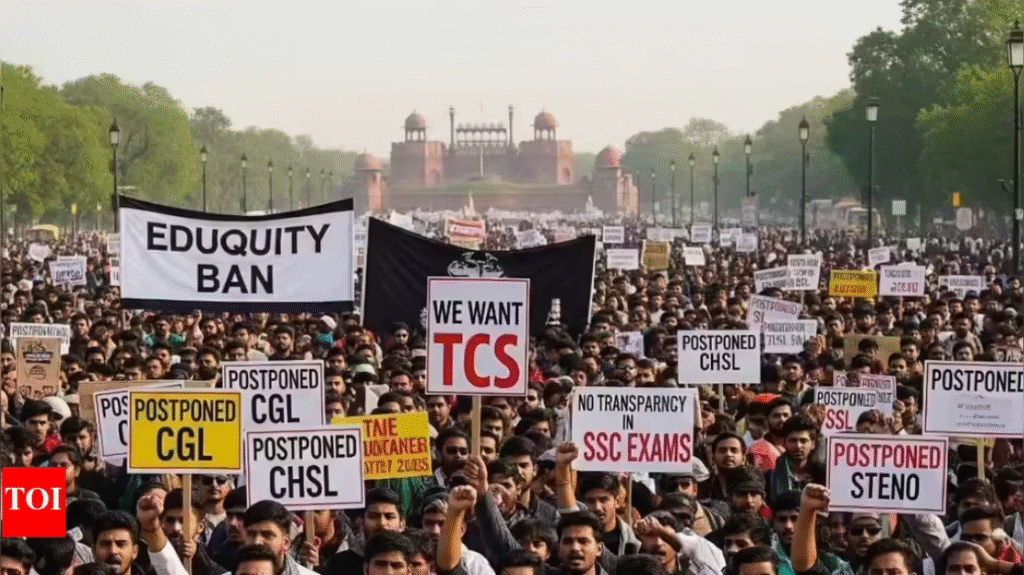At the media briefing marking the centenary of the Rashtriya Swayamsevak Sangh (RSS), chief Mohan Bhagwat outlined a sweeping vision for India’s future, addressing sensitive issues ranging from demographic policy to relations with the ruling BJP. His statements, delivered during the RSS’s 100-year celebrations, reflect both ideological continuity and adaptation to a changing national context.
Clarifies “75-Year Retirement” Remark
Mohan Bhagwat moved to clear the air over widespread speculation that he had suggested a retirement age of 75 for political leaders, including Prime Minister Narendra Modi. “I never said that someone must retire at 75,” he asserted, explaining that his earlier comment was a humorous reference to a late RSS functionary.
The clarification comes amid political chatter that the Sangh may be seeking a generational shift in leadership. Mohan Bhagwat dismissed such claims as “misinterpretations” and reaffirmed that the RSS does not dictate retirement rules for any leader.
“No Rift with BJP, Only Suggestions”
Addressing speculation of differences with the BJP, Mohan Bhagwat underlined that ties between the two organizations remain strong. “There is no manbhed (quarrel) anywhere,” he said, adding that coordination between the RSS and the BJP has always been smooth.
On the appointment of the next BJP president, Mohan Bhagwat reiterated that the Sangh merely offers suggestions when asked but leaves the final decision entirely to the party. “RSS does not impose decisions. The BJP is free to decide its leadership,” he said.
Mohan Bhagwat Calls for “Hum Do, Humāre Teen”
Perhaps his most debated remark came when Mohan Bhagwat suggested that every Indian family should ideally have three children.
He explained the reasoning by pointing to the replacement fertility rate of 2.1 children per family. “Two is not enough, because you can’t have 0.1 of a child. Three is healthy for the family and the nation,” he said.
He also suggested that siblings in larger families learn to manage egos and share responsibilities, making for a more balanced society. His comments mark a departure from the traditional “Hum Do, Humāre Do” slogan that dominated India’s family-planning discourse for decades.
Trade Policy: Self-Reliance with Openness
Turning to economic issues, Mohan Bhagwat reiterated the Sangh’s support for Swadeshi or self-reliance but clarified that this should not be equated with isolationism.
“Trade must be voluntary, not under pressure,” he said, while commenting on ongoing global tariff disputes. He emphasized that India should engage in international trade on equal terms, without compromising its sovereignty.
He also signaled confidence in the government’s ability to handle external challenges such as US tariffs, while affirming that the RSS would continue to support national policy decisions.
Language, Culture, and Identity
On the sensitive issue of language, Mohan Bhagwat sought to balance modern realities with cultural pride. He acknowledged the global utility of English but cautioned against allowing it to overshadow Indian languages.
“Learning English is good, but it should not come at the cost of one’s mother tongue,” he remarked. He also advocated the study of Sanskrit, describing it as a repository of India’s cultural and spiritual heritage, though he clarified it should not be made compulsory.
RSS’s Journey of a Century
Reflecting on the RSS’s 100-year journey, Mohan Bhagwat recalled the challenges faced by the organization, including long periods of neglect, hostility, and even government bans. Despite these hurdles, he said, the Sangh has today emerged as a widely accepted cultural force with influence extending beyond politics.
He framed the RSS’s ideology as rooted not in territorial dominance but in devotion to Bharat Mata and ancestral traditions. “The Hindu identity is about spiritual values and cultural roots, not just geography,” Bhagwat said.
Analysis: Why Mohan Bhagwat’s Remarks Matter
Mohan Bhagwat’s centenary address carries both political and social significance. His call for larger families may influence ongoing debates on population policies, while his defense of swadeshi trade dovetails with the government’s emphasis on self-reliance. His remarks on language and culture also resonate at a time when identity politics continues to shape public discourse.
Most importantly, by clarifying that RSS does not dictate BJP decisions, Mohan Bhagwat reinforced the Sangh’s position as an ideological mentor rather than a political controller.
To read more Indian Laws and news, visit Legal Guide India



